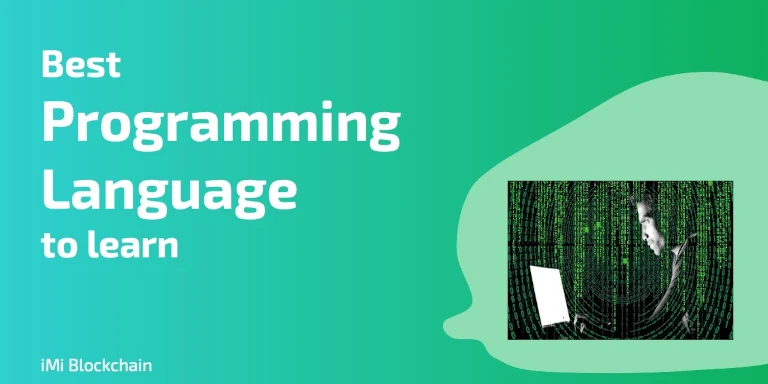
Hey there, future developer! If you’re reading this, you’re probably feeling a bit overwhelmed by all the programming languages out there. Trust us, we’ve been there. After years of helping professionals transition into tech, we know that choosing your first and best programming language to learn doesn’t have to be as complicated as it seems.
Let’s cut through the noise and figure out which programming language actually makes sense for your career goals.
Table of Contents
Factors to Consider When Choosing a Programming Language
Here’s what nobody tells you upfront: there’s no “perfect” nor best programming language. What matters more is:
- Where you want to end up in your career
- How quickly you need to land your first tech job
- What kind of projects actually interest you
- The job market in your area
Always remember that coding isn’t just about typing mysterious commands into a black screen anymore. Maybe you’re dreaming of building the next viral web app, crafting immersive video games that keep players up at night, or even jumping into the buzzing world of blockchain coding.
The cool part? Each of these paths has its own set of tools and languages that can help you get there faster. Think of programming languages like different paintbrushes – sure, you could use any brush to create art, but having the right one makes your job so much easier. Before you dive into the nitty-gritty of different languages, you should figure out what kind of developer you want to become. This will save you tons of time down the road.

Unlock Your Crypto Potential: Become a Market Maverick with Expert Coaching!
Are you ready to dive into cryptocurrency but need some advice? With our personalized 1:1 coaching, you’ll learn to:
Understand – the fundamentals of cryptos and how they impact value.
Navigate – through the volatile crypto market with confidence.
Identify – new lucrative opportunities that maximize returns.
Manage – exchanges and risk to protect your investments.
BOOK EXPERT COACHING NOWThe Top 10 Best Programming Languages to Learn in 2025
Some languages are great for making websites, while others are better for things like banking. Each language has its own strengths and weaknesses. You should attend a Tech Bootcamp to learn it the right way. Based on current industry trends and job market demands, here are the 10 best programming languages to learn:
1. Python

Python is renowned for its simplicity and versatility, making it an excellent choice for beginners and professionals alike.
Best for: Getting your foot in the door, especially if you’re interested in data.
Look, there’s a reason why Python keeps topping the charts. It’s like the English of programming languages – it’s everywhere, and it’s relatively easy to pick up. I’ve seen complete beginners write their first meaningful program in Python within days, not weeks.
| Use Cases of Python | Pros of Python | Cons of Python |
|---|---|---|
| Web Development | Easy-to-read syntax | Slower execution speed compared to compiled languages |
| Data Science | Extensive libraries and frameworks | |
| Machine Learning | Strong community support | |
| Automation | ||
| Scripting |
Job Market Demand for Python Developers:
High demand across various industries, particularly in data science and web development. If you learn Python, you can earn between $63,000 to $163,000 a year in the USA.
2. Javascript

JavaScript is the backbone of web development, enabling interactive and dynamic user experiences.
Best for: Anyone who wants to see immediate results.
Here’s the deal with JavaScript: if you want to build anything interactive on the web, you’ll need to know it. Period. It’s not always the prettiest language, but it’s essential.
| Use Cases of Javascript | Pros of Javascript | Cons of Javascript |
|---|---|---|
| Front-end and Back-end Web Development | Runs in all modern browsers | Can be challenging to debug |
| Mobile App Development | Extensive frameworks like React and Node.js | Rapidly evolving ecosystem |
| Game Development | Large developer community |
Job Market Demand for Javascript Developers:
Consistently high, with numerous opportunities in web and mobile development. If you learn Javascript and get really good at it, a lot of companies might want to hire you. In the US, people who are experts at Javascript can make around $101,000 a year.
3. Java
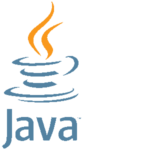
Java is a robust, object-oriented language widely used in enterprise environments.
Best for: Those aiming for large tech companies.
Java might seem “old school,” but here’s why it’s still relevant: it powers Android development and countless enterprise systems. If job security is your priority, Java is your friend.
| Use Cases of Java | Pros of Java | Cons of Java |
|---|---|---|
| Enterprise Applications | Platform-independent | Verbose syntax |
| Android App Development | Strong performance | Steeper learning curve for beginners |
| Large-scale Systems | Extensive libraries |
Job Market Demand for Java Developers:
Steady demand, especially in large organizations and Android development. According to Glassdoor.com, Java professionals in the US earn around $103,000 per year. And we at iMiBlockchain can help you to learn Java the easy way.
4. C#
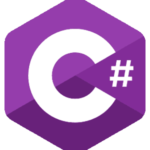
Developed by Microsoft, C# is integral to the .NET framework and is popular for Windows application development.
Best for: Gaming or Windows applications.
Some folks think C# isn’t as popular anymore, but that’s not true. It is still a very important language and many companies use it.
| Use Cases of C# | Pros of C# | Cons of C# |
|---|---|---|
| Windows Applications | Versatile and powerful Integrated with Microsoft tools | Primarily used in Microsoft ecosystems |
| Game Development with Unity Web Services | Strong typing system | Less cross-platform flexibility |
Job Market Demand for C# Developers:
High demand in industries utilizing Microsoft technologies and game development. A person who is really good at using C# can earn around $103,000 a year!
5. Go (GoLang)

Go, developed by Google, is known for its efficiency and performance in system-level programming.
Best for: Networking, web development, and microservices.
GoLang is great for making websites and apps. Big companies like Uber, Twich, and Google using it.
| Use Cases of GoLang | Pros of GoLang | Cons of GoLang |
|---|---|---|
| Cloud Service Systems | Simple syntax | Limited libraries compared to older languages |
| Programming Network Servers | High performance | Less suitable for complex applications |
| Concurrency support |
Job Market Demand for Go Developers:
Growing demand, particularly in cloud computing and server-side applications. Some GoLang programmers can make up to $184,000 a year!
6. Swift

Swift is Apple’s programming language for iOS and macOS applications, emphasizing performance and safety.
Best for: Server apps that need runtime safety, compiled performance, and a small memory footprint.
Swift can be used on servers with different technologies. Big apps like WordPress, Firefox, SoundCloud, and some games use Swift.
| Use Cases of Swift | Pros of Swift | Cons of Swift |
|---|---|---|
| iOS and macOS App Development | Modern syntax | Limited to Apple ecosystems |
| Server-side Development | High performance | Smaller community compared to other languages |
| Strong safety features |
Job Market Demand for Swift Developers:
High demand for iOS developers, with numerous opportunities in mobile app development. People who are really good at Swift can earn a lot, around $129,000 on average!
7. Kotlin

Kotlin is a modern language that interoperates with Java and is officially supported for Android development.
Best for: Android mobile app development.
Kotlin is a computer language made by a company called JetBrains in 2011. You can find all its details on GitHub.
| Use Cases of Kotlin | Pros of Kotlin | Cons of Kotlin |
|---|---|---|
| Android App Development | Concise syntax | Smaller community |
| Web Development | Interoperable with Java | Limited resources compared to Java |
| Server-side Applications | Enhanced safety features |
Job Market Demand for Kotlin Developers:
Increasing demand, especially in Android development. Kotlin developers earn an average annual salary of $122,529 in the United States.
8. R

R is a free programming tool used a lot for working with data.
Best for: Statistical computing and graphics.
Many people, especially those who work with numbers, like to use R. It can work well with another system called S, so it’s easy to mix them.
| Use Cases of R | Pros of R | Cons of R |
|---|---|---|
| Data Analysis | Extensive statistical libraries | Steeper learning curve |
| Statistical Modeling | Strong data visualization capabilities | Slower performance with large datasets |
| Data Visualization | Active community in academia |
Job Market Demand for R Developers:
High demand in data analytics and research sectors. The average salary of R programmers in the United States is $124,000 per year.
9. TypeScript

TypeScript is a superset of JavaScript that adds static typing, enhancing code quality and maintainability.
Best for: Large-scale projects.
TypeScript allows you to catch errors very effectively and write maintainable and robust code.
| Use Cases of TypeScript | Pros of TypeScript | Cons of TypeScript |
|---|---|---|
| Large-scale Web Applications | Improved code reliability | Requires compilation |
| Server-side Development | Better tooling support | Additional learning curve for JavaScript developers |
| Mobile App Development | Backed by Microsoft |
Job Market Demand for TypeScript Developers:
Growing demand, particularly for large-scale web applications. In the United States, the average annual salary for a TypeScript developer is $134,322 per year.
10. SQL
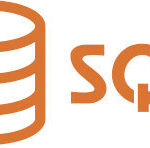
SQL (Structured Query Language) is essential for managing and querying relational databases.
Best for: Databases, to store, update, remove, search, and retrieve information from and to maintain and optimize database performance.
SQL coding is a way to talk to databases. People who learn SQL have great career opportunities.
| Use Cases of SQL | Pros of SQL | Cons of SQL |
|---|---|---|
| Database Management | Universal database language | Limited to database operations |
| Data Analysis | Efficient data manipulation | Not a general-purpose programming language |
| Backend Development | Integral to data-driven applications |
Job Market Demand for SQL Developers:
Consistently high, as databases are fundamental to most applications. SQL developers in the USA earn around $96,140 per year.

Unlock Your Business Potential with Certified Blockchain Consulting!
Dive into the future of technology with our team of certified blockchain experts. Simply pick the service you need:
Personalized Advice – tailored to your business needs.
Comprehensive Training – for you and your team.
Development Services – innovative solutions from the whitepaper to the finished blockchain.
Programming – with capabilities and tools to succeed.
TALK TO THE EXPERTS TODAYMore Coding Languages to Learn
Coders are like inventors. They create new computer languages to solve problems. That’s why it’s not easy to say which one is the best coding language to learn. Absolutely the best is, if you can combine multiple coding languages and create front- as well as backend applications. So what are these other coding languages worth mentioning?
11. HTML & CSS
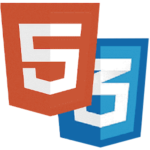
HTML is usually the 1st best programming language for absolute beginners to learn. It is like the building blocks for websites. Some people think that HTML and CSS aren’t like regular computer codes. They’re special because they just tell a website how to look and what to have on it. Other codes do more complicated stuff. So if you’re new to making websites, start to learn HTML (hypertext markup language) and learn CSS (incorporate cascading style sheets) to determine the size, color, and position of all page elements, including headings and adding functionality.
12. Ruby
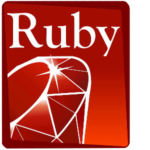
Ruby is a type of computer language used to make programs. Think of Ruby and Ruby on Rails as two different things, even if their names sound alike. Ruby was inspired by other computer languages like Perl and Lisp. A famous website called Airbnb uses Ruby to run its site where people book places to stay.
13. C and C++

C++ is like a special tool to tell computers what to do. It was made by Bjarne Stroustrup and is like an upgraded version of another tool called C. People use C++ to make things like computer systems, games, and even parts of websites.
14. PHP
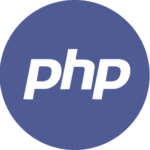
PHP is a kind of computer language that many websites use. Even though lots of websites use PHP, other computer languages are trying to be more popular too. But still, many new companies want people who know how to use PHP.
15. Solidity

Solidity is like a special tool to make smart agreements on a computer system called Ethereum. Gavin Wood first thought of this idea, and then a team from Ethereum made it. This tool is a bit like other computer tools you might know, such as Python and JavaScript.
16. Dart

Dart is a new but very versatile programming language developed by Google. It can be used to develop web and mobile apps as well as server and desktop applications. Dart is object-oriented, class-based, with C-style syntax. It can compile to machine code, JavaScript, or WebAssembly.

Unlock the Code: Master Blockchain Programming!
Dive into the world of decentralized technology with our comprehensive online programming courses. Learn at your own pace and get:
Access – to expert instructors.
Interactive – coding exercises.
Vibrant – community of like-minded learners.
Certified – receive your recognized diploma.
ENROLL TODAY AND TRANSFORM YOUR FUTURE!Best Coding Language to Learn (List & Comparison Chart)
| Language | Common use cases | Easy to learn | Popularity |
|---|---|---|---|
| Python | It helps make websites, video games, and even helps robots think! | It’s one of the easier ones. Score: 4/5 | Super popular! Score: 5/5 |
| Java | Big websites and apps. It also helps with managing big sets of data. | It’s kind of in the middle. Score: 3/5 | Very popular. Score: 5/5 |
| JavaScript | Making websites fun and interactive, and some apps. | Relatively easy to learn. Score is 4.5/5 | Not too hard. Score: 4.5/5 |
| C# | Making websites, games, and more. | Somewhere between easy and medium. Score: 3.5/5 | Popular, but not as much as Java. Score: 4/5 |
| Swift | Making apps for iPhones and iPads. | Not too hard. Score: 4/5 | Super popular for iPhone apps. Score: 4.5/5 |
| C and C++ | Fast apps, video games, and things like the Firefox web browser. | A bit tricky. Score: 2.5/5 | Pretty popular, especially for fast web stuff. Score: 4/5 |
| PHP | Helps websites work and talk to their servers. | Not too hard. Score: 4/5 | Very popular for websites. Score: 4/5 |
| GoLang | Websites, apps, and the technology behind things like Bitcoin. | Not too bad, especially if you know some programming. Score: 3.5/5 | Not super popular. Score: 3/5 |
| R | Looking at lots of data, teaching robots, and doing math stuff. | Somewhere between easy and medium. Score: 3.5/5 | Not as popular as the big ones. Score: 3/5 |
| Solidity | Making safe deals online and other web things. | Not too hard, but it’s new so there might not be as much help online. Score: 3.5/5 | Mostly popular for special web stuff. Score: 3/5 |
Most Popular Programming Languages in 2025
As technology continues to advance, several trends are shaping the programming landscape. Here are the 4 most popular programming languages and use cases in 2024:
- Artificial Intelligence and Machine Learning: Languages like Python and R are at the forefront of AI and ML development.
- Blockchain Development: Languages such as Solidity are gaining traction for smart contract development.
- Cross-Platform Development: Languages like Dart (with Flutter) are becoming popular for building cross-platform mobile applications.
Key Takeaways
The tech landscape is always evolving, but don’t let that paralyze you. The fundamentals of programming remain constant. Focus on learning those fundamentals through whichever language speaks to you most.
Ready to start coding? Pick your programming language and dive in. The tech community is waiting to welcome you!
P.S. Still unsure? Start with Python. It’s versatile enough that you can’t go wrong, and its gentle learning curve means you’ll see results quickly.
Learn Blockchain Programming!
Book a Training
Watch our Webinars
Enroll in Coding Courses
Become a Pro yourself
Get Free Blockchain Tips!
Get monthly blockchain tips.
On top, you’ll get our free blockchain beginners course right away to learn how this technology will change our lives.
Frequently asked questions
What programming language should I learn first?
Choose the best programming language based on your goals and its difficulty. Consider available resources and tutorials. You can learn through self-study, school, or coding boot camps. Pick a language you’re comfortable with to reach your goals. Bootcamps are a great way to boost your programming career.
What is the easiest programming language to learn?
Every programming language varies in difficulty. The easiest one for beginners differs for each person. Someone with coding knowledge might find a new language simple, but beginners might find it hard. It all depends on your experience.
Which is easier Python or C++?
Python is often seen as easier for beginners because of its simple syntax. C++ can be trickier due to more complex features. However, some with a programming background might find C++ easier. Choose the language that fits your goals best.
What is the best programming language to learn to get a job?
Looking for a job in programming? Choose general languages like Python, C#, or for game development. Check which languages startups in your area want. For beginners, Java is a great start because it’s simple. Also, look at Stack Overflow’s surveys to see popular languages.
What is required for a full-stack developer?
A full-stack developer handles both the visible and hidden parts of a website. They need good management skills and should know languages like HTML/CSS and tools like Angular JS and React.
Is C++ still the best programming language?
It depends on the project and what you want. C++ is strong and used a lot, especially for fast tasks. But, other languages like Python and JavaScript are great for other jobs. The best language depends on your goal.


